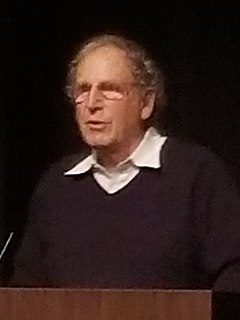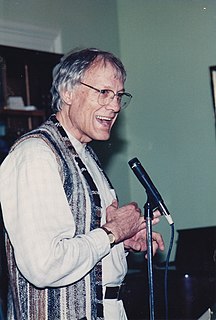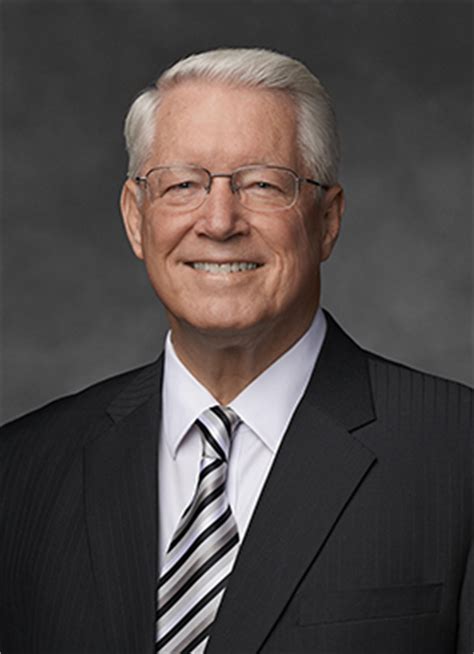A Quote by Emile M. Cioran
Knowledge subverts love: in proportion as we penetrate our secrets, we come to loathe our kind, precisely because they resemble us.
Related Quotes
The mystery of the spiritual life is that Jesus desires to meet us in the seclusion of our own heart, to make his love known to us there, to free us from our fears, and to make our own deepest self known to us Each time you let the love of God penetrate deeper into your heart it leads to a love of ourselves that enables us to give whole-hearted love to our fellow human beings. In the seclusion of our hearts we learn to know the hidden presence of God; and with that spiritual knowledge we can lead a loving life.
Rather, it is the opening or the interruption that allows us to experience what is hidden, and to accept with our hearts our given situation. When film does this, when it subverts our absorption in the temporal and reveals the depths of our own reality, it opens us to a fuller sense of ourselves and our world. It is alive as a devotional form.
We are not commanded (or forbidden) to love our mates, our children, our friends, our country because such affections come naturally to us and are good in themselves, although we may corrupt them. We are commanded to love our neighbor because our natural attitude toward the other is one of either indifference or hostility.
Life is a continuous flux. Our nonhuman ancestors bred, generation after generation, and incrementally begat what we now deem to be the species homo sapiens - ourselves. There is nothing about our ancestral line or about our current biology that dictates how we will evolve in the future. Nothing in the natural order demands that our descendants resemble us in any particular way. Very likely, they will not resemble us. We will almost certainly transform ourselves, likely beyond recognition, in the generations to come.
A relationship that has any depth and power at all will inevitably penetrate our usual shield of defenses, exposing our most tender and sensitive spots, and leaving us feeling vulnerable - literally, 'able to be wounded.' To love, in this sense, is to open ourselves to being hurt. The dream of love would have us believe that something is wrong if a relationship causes us pain. Yet trying to avoid the wound of love only creates a more permanent kind of damage. It prevents us from opening ourselves fully, and this keeps us from ever forming a deeply satisfying intimate connection.
Life's very difficult and full of surprises. At all events, I've got as far as that. To be humble and kind, to go straight ahead, to love people rather than pity them, to remember the submerged - well, one can't do all these things at once, worse luck, because they're so contradictory. It's then that proportion comes in - to live by proportion. Don't begin with proportion. Only prigs do that. Let proportion come in as a last resource, when the better things have failed.
From whence it is obvious to conclude that, since our Faculties are not fitted to penetrate into the internal Fabrick and real Essences of Bodies; but yet plainly discover to us the Being of a GOD, and the Knowledge of our selves, enough to lead us into a full and clear discovery of our Duty, and great Concernment, it will become us, as rational Creatures, to imploy those Faculties we have about what they are most adapted to, and follow the direction of Nature, where it seems to point us out the way.
As Indigenous peoples, we know there is more to the world. We know spirits exist. We know as women, because we're especially attuned to this kind of knowledge, that spirits exist and have a presence in our lives. Some of us are gifted and can communicate with the spirit world. Not everyone has that gift and can perceive the borders between the living and the dead and our society actively discourages us of exploring the knowledge of what many of us have already always known in our cultures.
How unutterably sweet is the knowledge that our Heavenly Father knows us completely. No talebearer can inform on us; no enemy can make an accusation stick; no forgotten skeleton can come tumbling out of some hidden closet to abash us and expose out past; no unsuspected weakness in our characters can come to light to turn God away from us, since He knew us utterly before we knew him and called us to Himself in the full knowledge of everything that was against us.
The gift our enemy may be able to bring us: to see aspects of ourselves that we cannot discover any other way than through our enemies. Our friends seldom tell us these things; they are our friends precisely because they are able to overlook or ignore this part of us. The enemy is thus not merely a hurdle to be leaped on the way to God. The enemy can be the way to God. We cannot come to terms with our shadow except through our enemies.
Essential to our personal faith and development is the unmistakable knowledge that our Father and our Savior want us to succeed. They want us to return to Their presence. Because of Their love for us, They have given us resources to obtain comfort, direction, and strength for our journey home. I speak of prayer, the wonderful and sublime ability to communicate and share our concerns with the Father; the Holy Spirit, which will enlighten and comfort us; and the words of the prophets, both ancient and modern. These resources give us understanding and direction in dealing with our challenges.








































